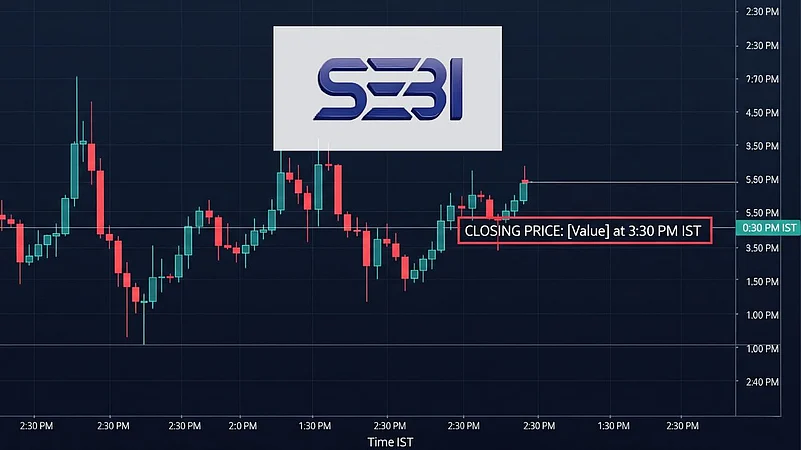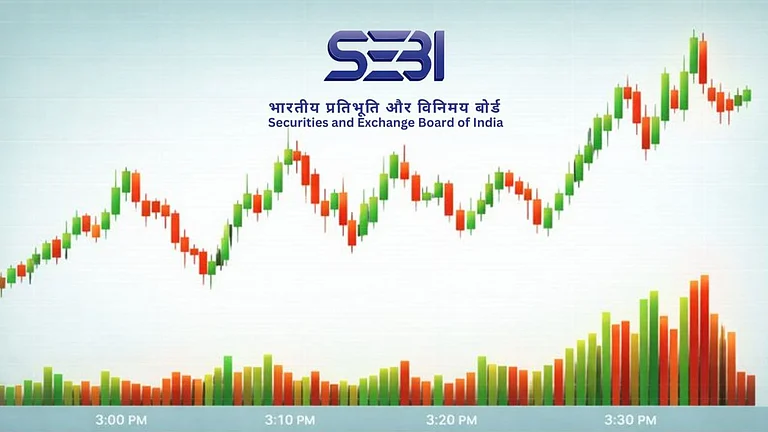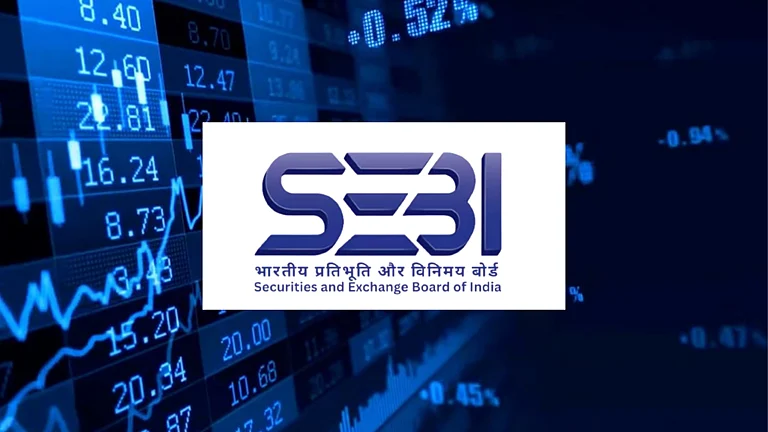
Summary of this article
Sebi proposes Closing Auction Session (CAS) to replace current VWAP system to determine closing prices of stocks
CAS to be implemented initially with derivative stocks, and will run from 3:15 PM to 3:35 PM.
CAS offers more transparency, helps passive funds, and reduces reliance on block deals, says Sebi
The Securities and Exchange Board of India (Sebi) revised its earlier proposal regarding the introduction of a new system to derive the closing prices of stocks. The new system, called Closing Auction Session (CAS), is globally practised and is considered more “stable” and "less volatile” according to the regulator. Currently, the exchanges in India follow the Volume Weighted Average Price (VWAP) system to arrive at closing price.
“Data and research suggest that CAS provides a more stable and less volatile closing price compared to the volatility often observed under a Volume Weighted Average Price (VWAP) based closing price methodology, even when handling the same level of trading volumes,” said Sebi in its consultation paper dated August 22, 2025.
Why Sebi Wants CAS
The capital market regulator plans to implement the CAS for multiple reasons such as seeking an alignment with global practices, bolstering passive investment and reducing tracking error.
Aligning With Global Practices
India is currently the only major market that still relies on VWAP for price discovery at the close. Sebi said shifting to CAS will “ensure alignment with global benchmarks” such as the New York Stock Exchange (NYSE), London Stock Exchange (LSE), Euronext, Hong Kong Exchanges and Clearing Ltd (HKEX), Australian Stock Exchange (ASX), and other global stock exchanges which have adopted CAS as the closing price determination mechanism.
Supporting The Growth In Passive Investing
The regulator also highlighted that passive investment through mutual funds (MFs) and foreign portfolio investors (FPIs) has seen significant growth in India lately. As of July 31, 2025, FPIs had about Rs 20.5 lakh crore invested in passive funds, making up nearly 29 per cent of their total equity assets under management (AUM). Domestic MFs had Rs 9.18 lakh crore in passive funds, accounting for around 27.5 per cent of their total equity AUM.
Reducing Tracking Error In Global Indices
At the same time, the increasing presence of Indian stocks in major global indices such as FTSE and MSCI, where they command weights between 17 per cent and 30 per cent, has also amplified the demand for the ability to trade at closing price to reduce the tracking error.
A Transparent Alternative to Block Deals
The regulator said CAS could also make it easier for large institutional investors to execute big trades. Currently, such transactions usually happen through the block deal window, where counterparties agree on prices beforehand and settle the trade separately. While such an arrangement ensures confidentiality of the trade, it also means deals sometimes take place away from the current market price, which could raise questions about price justification.
Improving Execution Certainty
CAS is different because it collects all buy and sell orders from various participants, such as institutional investors, domestic MFs, FPIs, and retail investors, into one transparent price discovery process. This allows institutional investors to get execution certainty at the closing price. “The institutional investors can achieve execution certainty at the closing price, without relying solely on negotiated block deals, thereby improving market transparency and reducing information leakage risk,” said the regulator.
How Sebi Plans To Implement CAS
As per the revised proposal, CAS will initially be implemented only on stocks in the derivative segment, rather than just Nifty 50 or Sensex constituents, as earlier proposed on December 5, 2024.
“If CAS is implemented only for Nifty 50 / Sensex 30 constituents, many stocks in the indices tracked by passive funds would continue to have their closing prices determined by the VWAP methodology … complicating execution and increasing operational complexity,” the paper said, providing the rationale.
The timing for the CAS has also been shifted. Instead of starting after the market closes, Sebi has now proposed that CAS should run from 3:15 PM to 3:35 PM as a 20-minute session split into four phases. The regulator explained that holding the auction after 3:30 PM could create problems for trade allocation, net asset value (NAV) calculation for MFs, and settlement deadlines. “An extended closing time under CAS would compress the already tight window post-closing time … raising the risk of operational errors and missed settlement cut-offs, particularly for foreign investors,” Sebi said in the paper.
Sebi also proposed a narrower band for price discovery. Trades during CAS would be limited to within 3 per cent above or below the reference price, as against the 5 per cent limit proposed in its earlier plan. The reference price itself would now be based on the VWAP of trades between 3:00 PM and 3:15 PM, instead of the last 30 minutes of the session, to reduce distortions.
Another major change is in the order execution sequence. Previously, limit orders were to be given priority. In the revised design, market orders will be executed first. Sebi noted that giving limit orders priority could reduce execution certainty for market orders and work against the goal of maximising volumes in CAS.
Sebi has sought public opinion on these along with a few other proposals by September 12, 2025.














